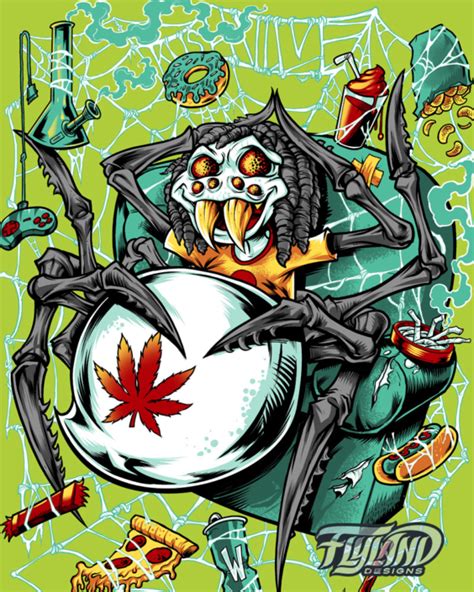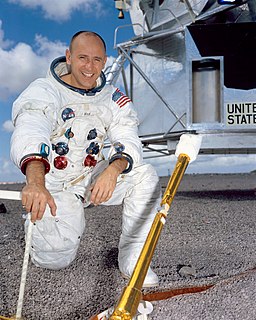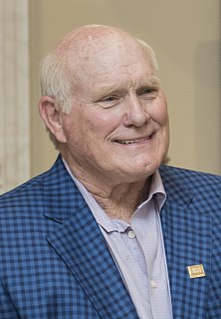A Quote by Tony Kushner
Accuracy is paramount in every detail of a work of history. Here's my rule: Ask yourself, 'Did this thing happen?' If the answer is yes, then it's historical. Then ask, 'Did this thing happen precisely this way?' If the answer is yes, then it's history; if the answer is no, not precisely this way, then it's historical drama.
Related Quotes
I would show my jobs to my mother, and she would always say the same thing: "That's nice dear". And then she would say: "Did you write it or did you do the drawing?" or "Did you take the pictures?" I'd always answer "no", then I realized the problem. My answer was then, "I made this happen". It's called design.
Every once in awhile, find a spot of shade, sit down on the grass or dirt, and ask yourself this question: “Do I respect myself?” A corollary to this question: “Do I respect the work I’m doing?” If the answer to the latter question is NO, then the answer to the former question will probably be NO too. If this is the case, wait a few weeks, then ask yourself the same two questions. If the answers are still NO, quit.
John Wesley tells of a dream he had. In the dream, he was ushered to the gates of Hell. There he asked, "Are there any Presbyterians here?" "Yes!", came the answer. Then he asked, "Are there any Baptists? Any Episcopalians? Any Methodists?" The answer was Yes! each time. Much distressed, Wesley was then ushered to the gates of Heaven. There he asked the same question, and the answer was No! "No?" To this, Wesley asked, "Who then is inside?" The answer came back, "There are only Christians here."
You can tell a true war story by the questions you ask. Somebody tells a story, let's say, and afterward you ask, 'Is it true?' and if the answer matters, you've got your answer . . . Absolute occurrence is irrelevant. A thing may happen and be a total lie; another thing may not happen and be truer than the truth.
When you ask why did some particular question occur to a scientist or philosopher for the first time, or why did this particular approach seem natural, then your questions concern the context of discovery. When you ask whether the argument the philosopher puts forth to answer that question is sound, or whether the evidence justifies the scientific theory proposed, then you've entered the context of justification. Considerations of history, sociology, anthropology, and psychology are relevant to the context of discovery, but not to justification.
We ask ourselves all kinds of questions, such as why does a peacock have such beautiful feathers, and we may answer that he needs the feathers to impress a female peacock, but then we ask ourselves, and why is there a peacock? And then we ask, why is there anything living? And then we ask, why is there anything at all? And if you tell some advocate of scientism that the answer is a secret, he will go white hot and write a book. But it is a secret. And the experience of living with the secret and thinking about it is in itself a kind of faith.
Philosophers often think all scientists must be scientific realists. If you ask a simple question like "Are electrons real?" the answer will be "Yes". But if your questions are less superficial, for example whether some well-known scientist was a good scientist. Then, they had insisted that only empirical criteria matter and that they actually did not believe in the reality of sub-atomic entities. Ask "If that turned out to be true, would you still say they were good scientists?" The answer would reveal something about how they themselves understood what it is to be a scientist.
Ask your child for information in a gentle, nonjudgmental way, with specific, clear questions. Instead of “How was your day?” try “What did you do in math class today?” Instead of “Do you like your teacher?” ask “What do you like about your teacher?” Or “What do you not like so much?” Let her take her time to answer. Try to avoid asking, in the overly bright voice of parents everywhere, “Did you have fun in school today?!” She’ll sense how important it is that the answer be yes.
I gained everything. Or at least I'll think so," he growled, suddenly impatient, anxious, "when you give me a bloody answer to my bloody question. How many times are you going to make me ask you? Will you marry me, Gabrielle O'Callaghan? Yes or yes? And in case you're still managing to miss the point, the correct answer is 'yes.' And, by the way, anytime you'd like to tell me you love me, I wouldn't mind hearing it.







































